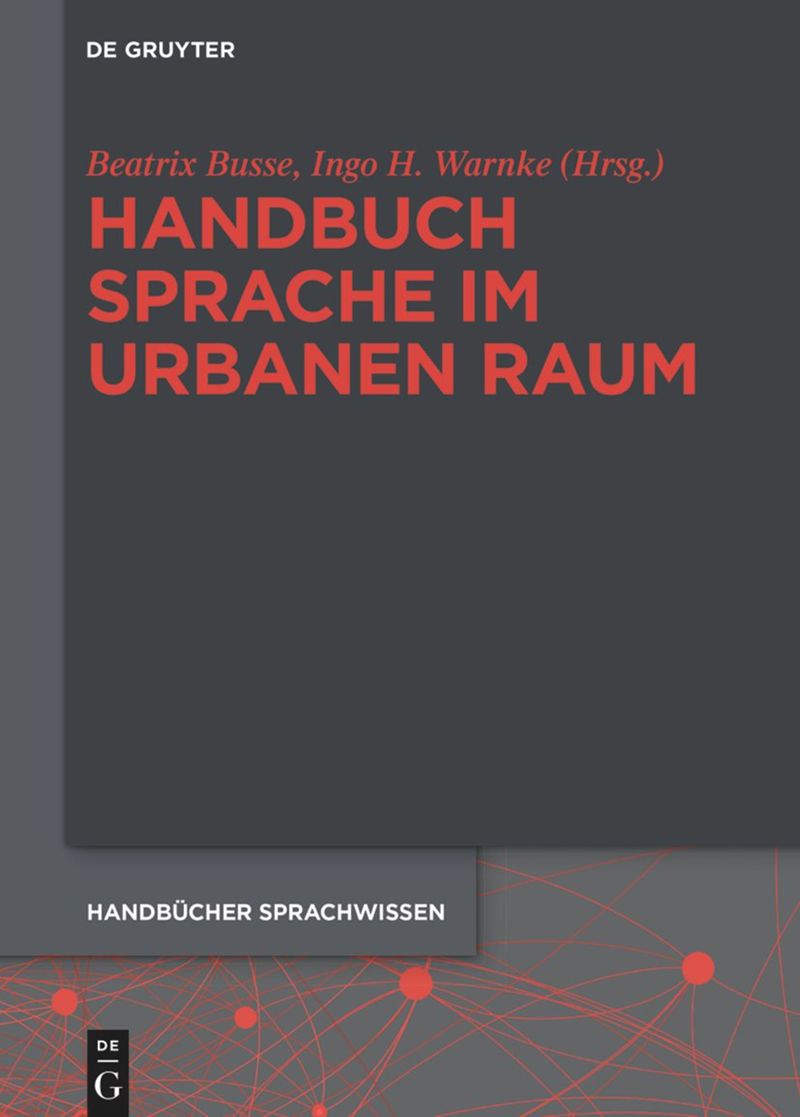
The chapter discusses the use of photographs in research on Linguistic Landscape. Based on the observation of a widespread use of photographic documentation, the status of photographs is critically reflected. The focus lies on a reading of Susan Sontag’s ([1977] 2014) Melancholy Objects. Here, conceptions of description and documentation are questioned, as they are common for some linguistic works, especially in the field of Urban Studies. Of particular importance is the examination of the tension between realism and surrealism as well as the question of the extraction of reality. The text, which is a remix of Susan Sontag’s ([1977] 2014) thoughts, is complemented by twenty photographs that address the limits of photographic representation in the linguistic text.
In Beatrix Busse & Ingo H. Warnke (eds.), Handbuch Sprache im urbanen RaumHandbook of Language in Urban Space, 333–393. De Gruyter.